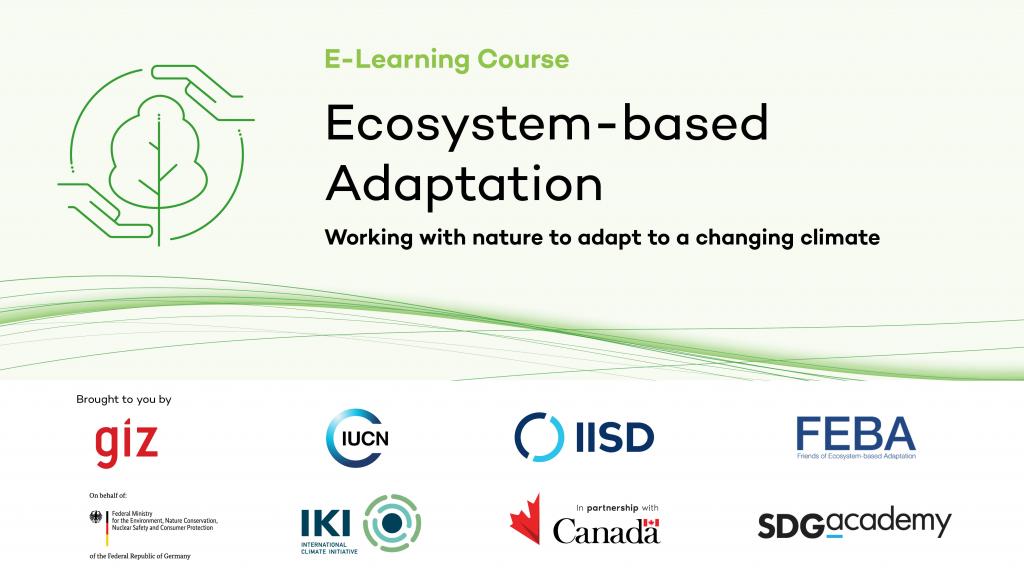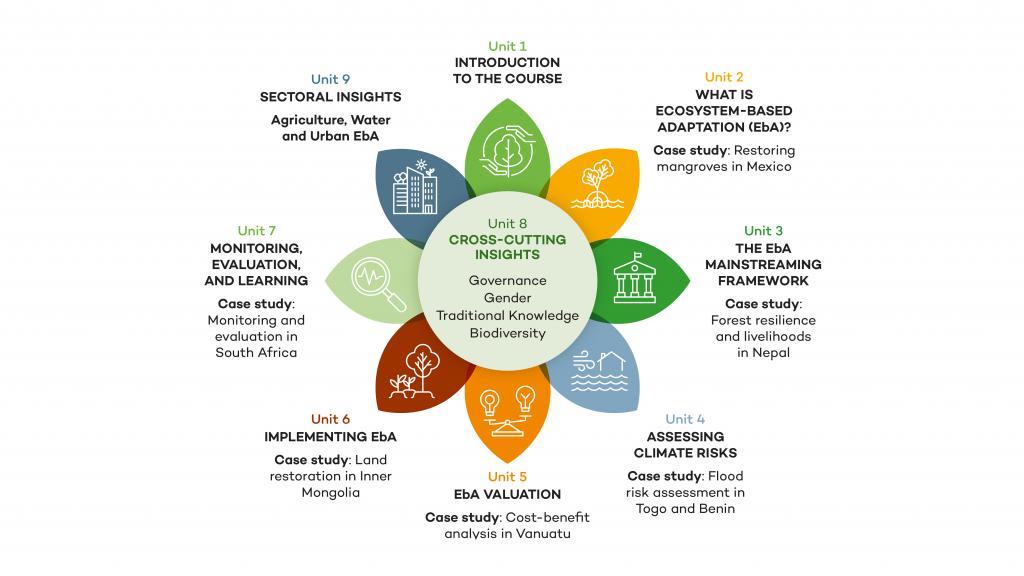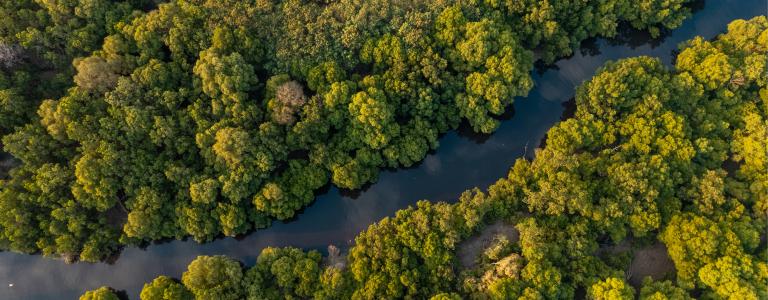Ecosystem-based Adaptation E-Learning Course

The Ecosystem-based Adaptation (EbA) E-Learning course—developed by Deutsche Gesellschaft für Internationale Zusammenarbeit (GIZ), the International Union for Conservation of Nature (IUCN), and the International Institute for Sustainable Development (IISD)—builds on more than a decade of research, experience, and partnerships in implementing EbA.
Offered as a massive open online course (MOOC), this self-paced learning equips learners with skills in designing and implementing EbA initiatives by offering targeted training on key principles, risk assessments, monitoring, and governance. The course will also work to increase EbA knowledge outside of the environmental conservation community and help participants integrate EbA into other sectors, including water, agriculture, and urban environments.
Why take the course?
- Understand the role of EbA within an overall climate change adaptation strategy.
- Be able to plan EbA activities in a logical order and apply EbA best practices.
- Learn how to integrate rights-based approaches and other aspects such as gender, livelihoods, and Traditional Knowledge into EbA projects.
- Discover how to mainstream EbA across sectors, including infrastructure, agriculture, and water resources management.
Course Syllabus
This self-paced course consists of nine units comprised of video lectures and case studies, quizzes, and handouts. The course will take approximately 10 hours to complete and can be completed at the convenience of the learner.

For more information about the course syllabus, instructors, and other pertinent details, visit the course page.
Upcoming events
Building Bridges: The State of Nature-Based Investments
Join us for a panel at the Building Bridges conference in Geneva, Switzerland, to discuss the state-of-play of nature-based investments and the potential opportunities they present.
A Municipal Perspective on the Value of Natural Infrastructure
This webinar will showcase examples the cost-effectiveness of natural infrastructure from a municipal perspective. Focusing on what municipalities need—what evidence and numbers they rely on, and what tools and planning processes are required to ensure that natural infrastructure is assessed alongside traditional infrastructure for cost-effectiveness.
Through Her Lens: Women leading change in sustainable agriculture and market inclusion
Despite the critical role that women play in agricultural production, they still do not have equal access to global agricultural supply chains on terms that benefit them.
